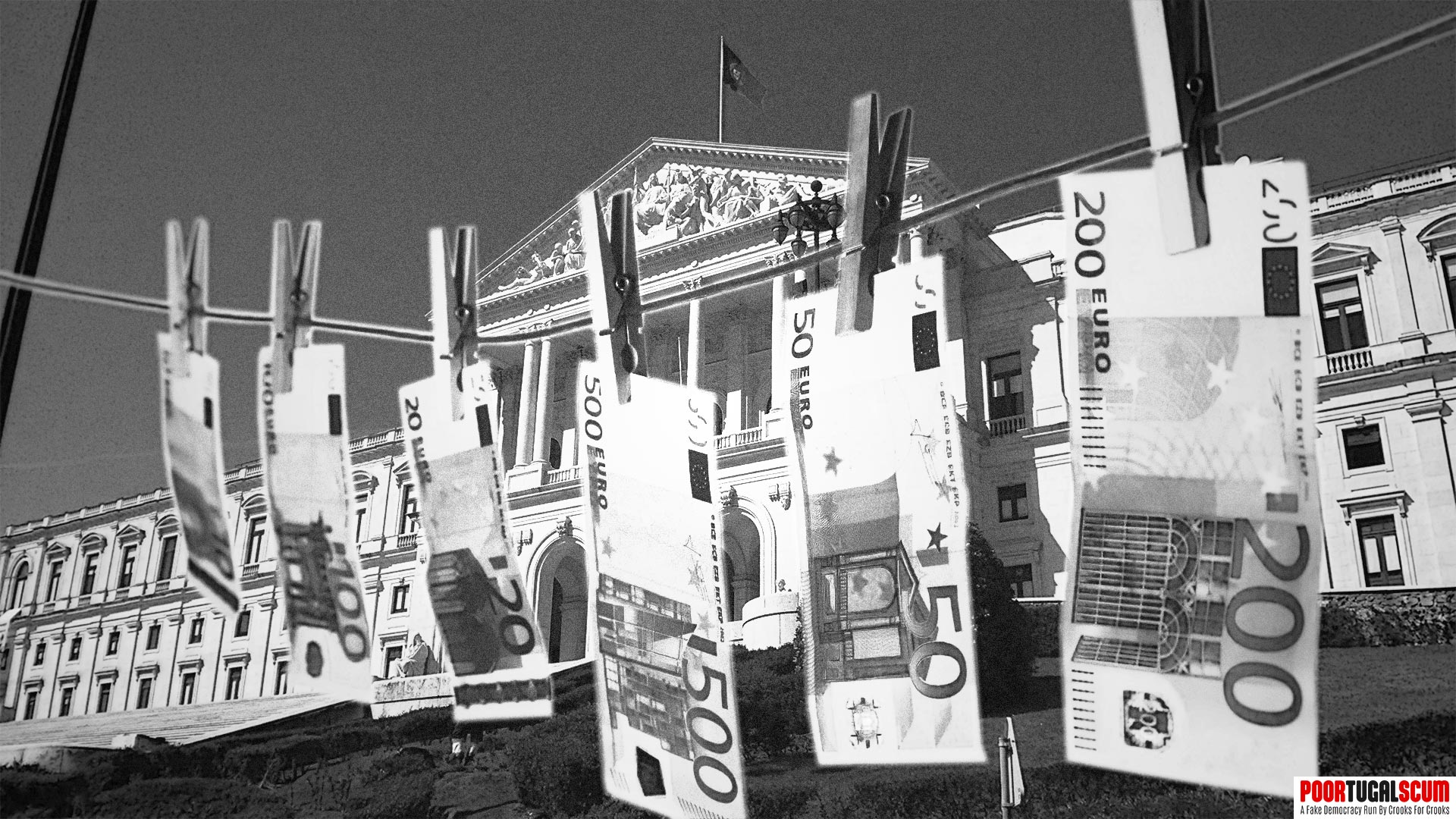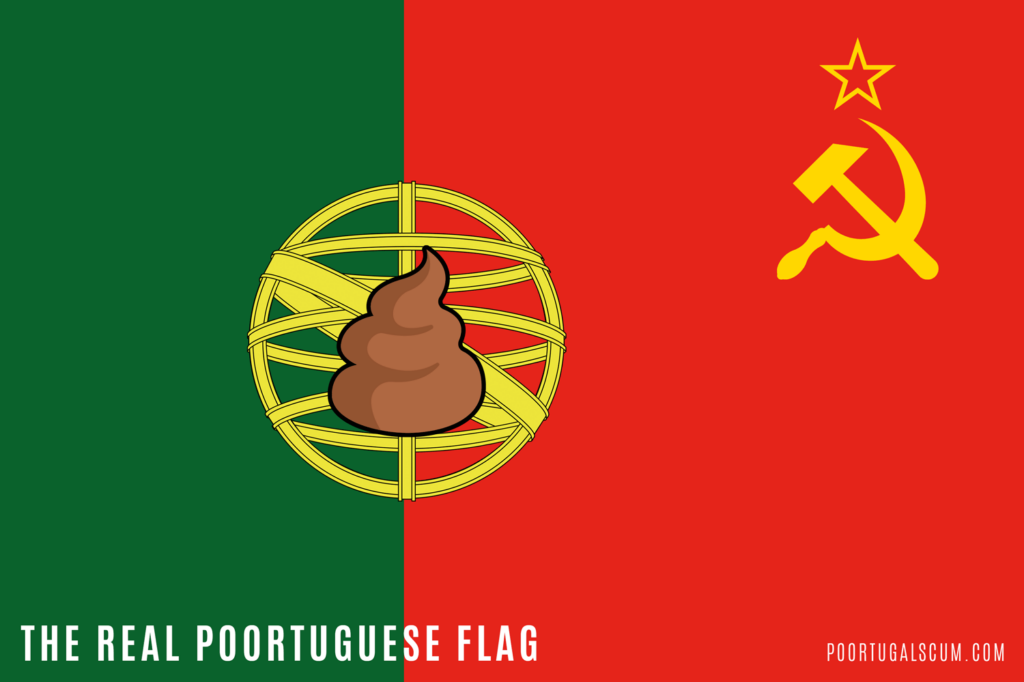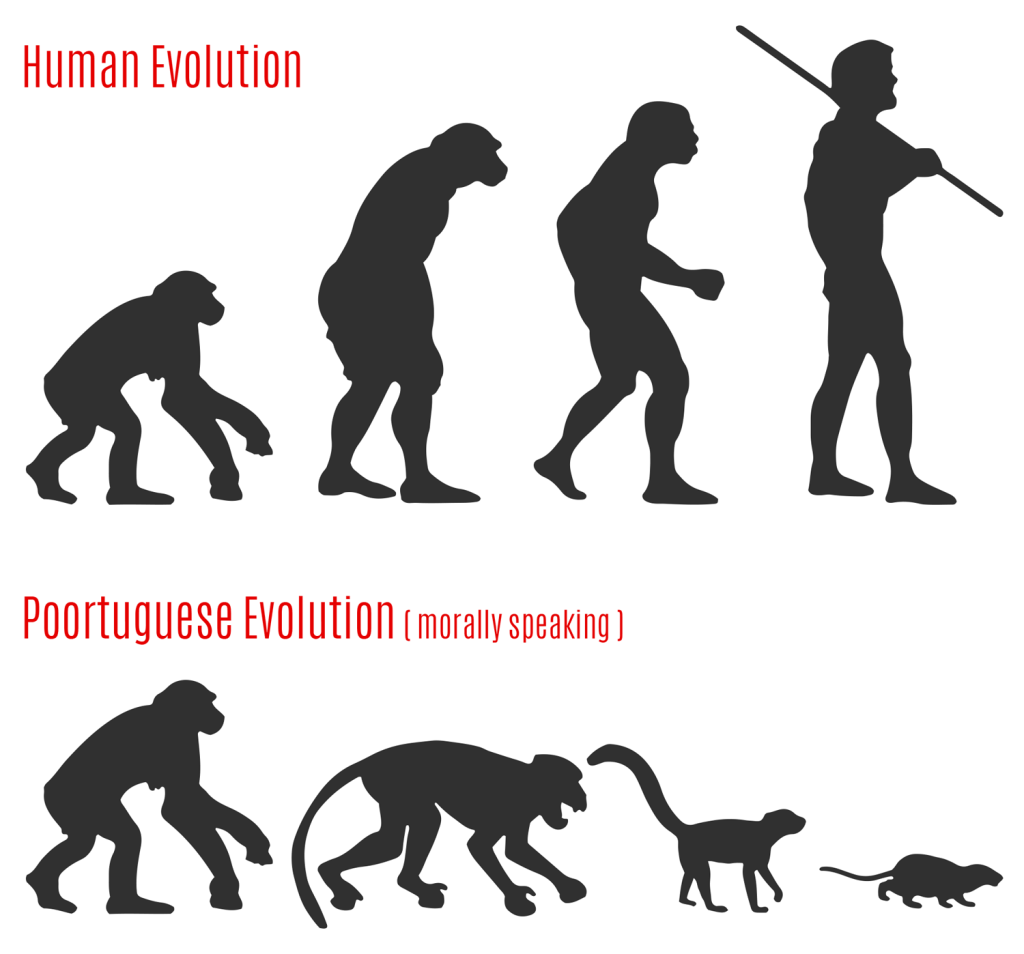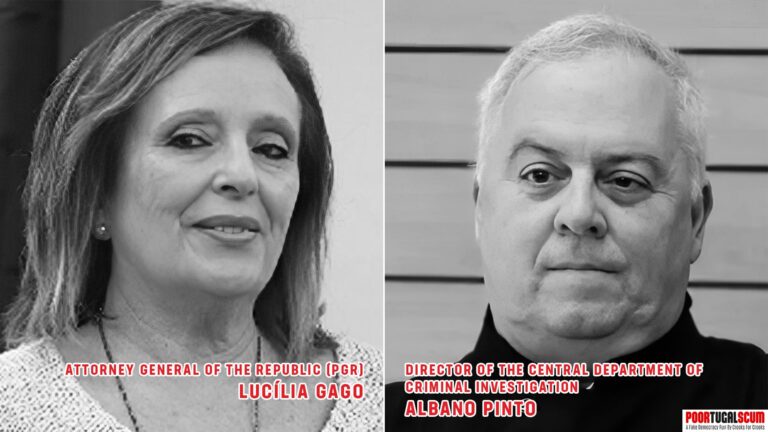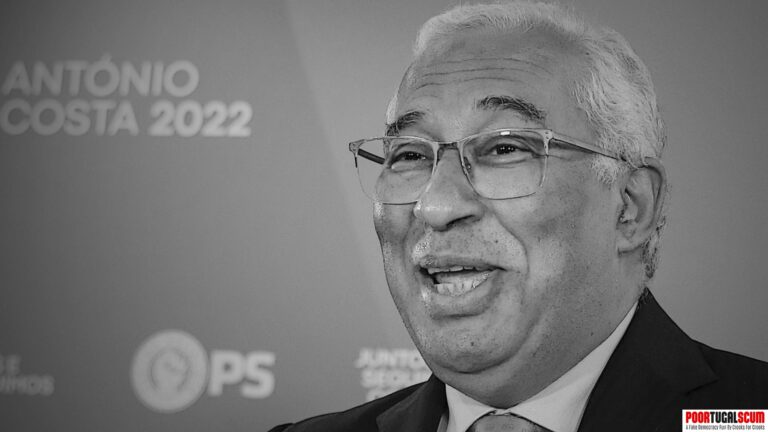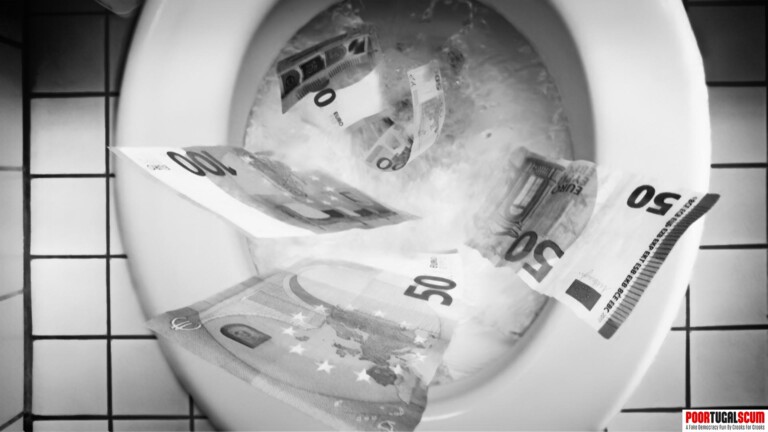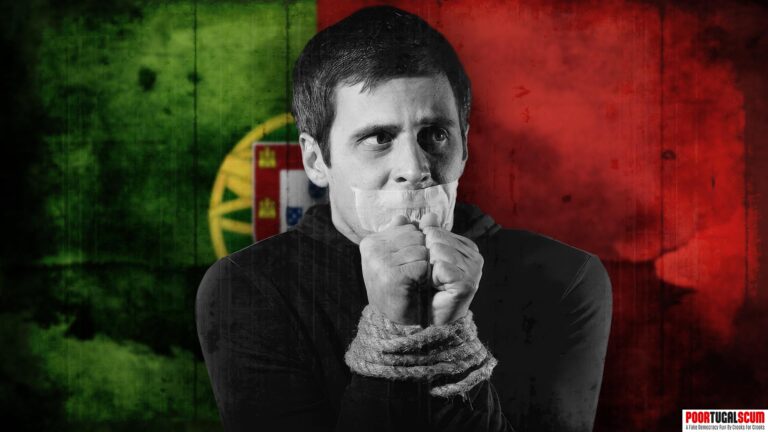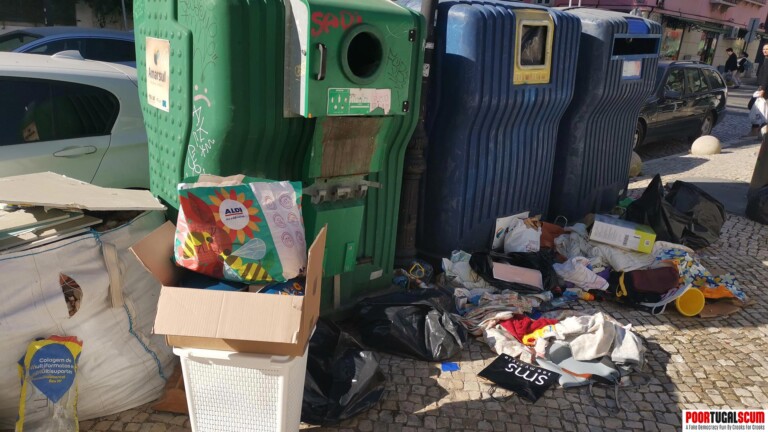This Portuguese deputy, who seems to be an upright person, reveals with simple but startling words a series of very serious and disturbing facts that expose the false Portuguese democracy at the service of criminals, with the usual connivance and passivity of most Portuguese people.
The following article is a translation (mostly MT). You can find the link to the original website at the end of it.
Interviewed by DN, the former PS MEP and former presidential candidate blames the political class, for example, for mistranslating EU anti-corruption directives. But also the people, who are “conniving”. And even the operators of justice, specialists in “working for the prescription”.
Portugal ranks 33rd in the Corruption Perception Index. With her international experience, as an MEP and as a diplomat, she sees Portugal’s image abroad damaged by the issue of corruption.
I don’t think it’s one of the issues that most harm Portugal. There are aspects such as bureaucracy or the slow functioning of justice that are more harmful to Portugal’s international image…
Namely for the purpose of obtaining investments?
I think so. Also because there is not much corruption in Portugal at the level of petty corruption – or at least it is not felt. In Portugal corruption is at the level of big business. For a foreigner, it’s not the little corruption that looms large, the one you feel in your day-to-day life. And there are other countries, including the European Union, where the perception of corruption is much more significant than in Portugal.
Are there European directives that have yet to be transposed to Portugal that are lacking in the Portuguese legislative system?
I don’t know if there are directives to transpose.
What I think is that there are a number of directives that are poorly transposed. And it’s not by chance.
For example?
For example, those related to money laundering. And those related to whistleblowers.
But especially in money laundering there are a series of directives that are poorly transposed and it was not by chance.
What is poorly transposed?
They have garbled sentences or distorted interpretations. And riding on a supposed national specificity, effectively invalidates and frustrates the purpose of the directive.
Is there a pretense of a legislative act that in practice does not question anything or anyone?
Exactly. And then there is another aspect that is more structural and which is a hyper-guarantee judicial system that, deep down, feeds the feeling of impunity. The Rendeiro case is a good example of this, or that of Ricardo Salgado, who inexplicably was never arrested, despite being accused of the worst things that can be done in terms of economic and financial crime. In Portugal, any chicken thief is immediately arrested – but these are not arrested. The feeling of impunity results from a hyper-guarantee system – and a hyper-guarantee application – which ends up contributing to the citizens’ feeling that corruption dominates, associated with serious crime and powerful means.
There is an anti-corruption legislative package that is somewhere in the Assembly of the Republic. Is it necessary, for example, to award the whistleblower or something like that?
I don’t like to say award the whistleblower. I like to talk about cooperation with the authorities, which must be encouraged and which obviously has to involve mitigating the sentences of those who were involved in criminal situations. I defend that – but everything is under judicial control and this is not rewarding the whistleblower. I support encouraging cooperation with the authorities. Corruption or money laundering are crimes that are not easy to prove. So there has to be one of the participants denouncing or collaborating for the authorities to act. This stimulus is essential and already exists in our country. I don’t do the seven-headed thing that some do – and they do it under the pretext of defending the rule of law but ending up perverting that rule of law in favor of criminality.
There is an entity that was created some time ago, the Entity of Transparency, but which in the end never goes forward…
And it’s not by chance…
Is it not by chance why?
It is like in the case of the transposition of European directives. It is done because it is mandatory and because it is important to be seen, but then it is not made to work. This case is more than clamorous. The inoperability of this entity is significant that there is no real interest in its operation. And it’s not from now.
Do you think that your party, the PS, is weak in fighting corruption?
Any power party is obviously vulnerable to corruption. Anyone – not just mine, they are all. Therefore, they should have stronger internal and external controls.
Would it be a cathartic act necessary for the PS, in relation to Sócrates, to have more commitment in the fight against corruption?
The Socrates case is exemplary. It is not enough to say that justice is expected to work and that to justice what belongs to justice. What is in the public domain is so politically serious that it obviously required introspection, even for the party not to be exploited by a corrupt person. This was not done.
Doesn’t justice itself, due to its slowness, end up causing as much damage, in terms of the perception of corruption, as the corrupt themselves?
Slowness is a reality. And it also depends on the areas of justice. There are areas where it’s fast.
When I was accused by Isabel dos Santos, in two months I was answering in court – at that time it was fast.
It is in the justice linked to economic crime that there is a tremendous slowdown and this has to do, in part, with the difficulties of investigation (lack of means, lack of resources, etc.).
But the other part has to do with political selectivity, the lack of political will.
From who?
From the operators of justice themselves. It really is a lack of political courage in the operators of justice. One of the big problems is working for the prescription. It is a more than usual scheme in Portugal. The investigations begin and then they start to work, working towards the prescription. Two examples: the case of the ship Atlântida, from the Shipyards of Viana do Castelo; and the case of submarines.
They’ve been working for the prescription for years.
It looks like an objective alliance between the investigation and the criminal suspects…
For sure. In practice, it is a way of guaranteeing impunity and that crime ends up paying off.
Here in Portugal, a good part of the perception of corruption has to do with the other, also very ingrained, perception of total impunity for criminals, namely in economic and financial crime.
Do we have a population that collaborates with impunity?
People live with corruption. Look at the things I’ve been saying about Luís Filipe Vieira [now former president of Benfica]. For years and years, a part of the Portuguese people, namely the Benfica people, did not want to know anything about the suitability of Luís Filipe Vieira. And so it also turned out to be conniving.
Gold visas are presented as a way to attract foreign investment. But in your opinion, do they also contribute to aggravating the perception of corruption in Portugal?
There is a report from the European Commission that says that golden visas are a perverse scheme to infiltrate organized crime in the European Union. Money laundering and other types of criminality. Anyone who wants to invest in our country does not do it because of the golden visas. They come anyway. By the way, golden visas do not have to be sold. They can be given to good investors and it doesn’t need to be sold. The latest data on foreign direct investment in Portugal prove that there has been an increase in this investment – and that without having seen an increase in golden visas. Golden visas are not a productive investment factor.

